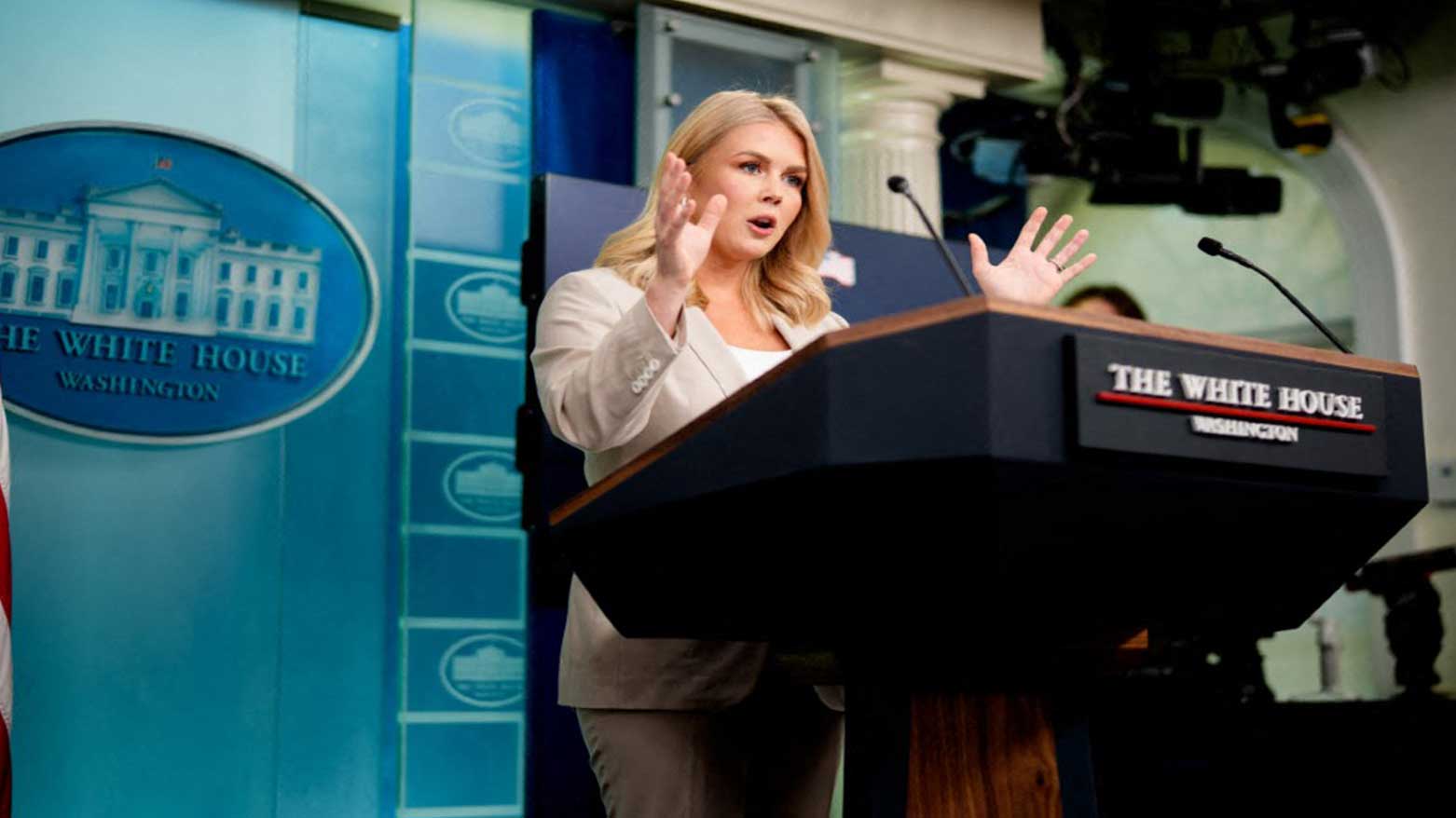White House Highlights Strategic Success in Containing Tehran’s Proxy Forces
Speaking at a press briefing, Leavitt emphasized that the ongoing military operations have inflicted severe damage on Iran’s proxy network and disrupted its ability to project power in the region.

ERBIL (Kurdistan24) – The United States has significantly weakened Iran’s regional influence through a series of successful strikes on Houthi targets in Yemen, White House Spokesperson Karoline Leavitt said on Tuesday.
Speaking at a press briefing, Leavitt emphasized that the ongoing military operations have inflicted severe damage on Iran’s proxy network and disrupted its ability to project power in the region.
“These Houthi strikes have been incredibly successful,” Leavitt stated. “The last time I was at this podium, there were more than 100 successful strikes. There have now been over 200 successful strikes against the Houthis. Iran is incredibly weakened as a result of these attacks.”
According to Leavitt, the strikes have taken out key Houthi leaders and high-ranking operatives responsible for launching attacks on naval and commercial vessels in the Red Sea. The White House reiterated that these operations will continue until freedom of navigation in the region is fully restored.
White House Highlights Strategic Success in Containing Tehran’s Proxy Forces!
— Kurdistan 24 English (@K24English) April 2, 2025
Speaking at a press briefing, Leavitt emphasized that the ongoing military operations have inflicted severe damage on Iran’s proxy network and disrupted its ability to project power in the region.
🔗:… pic.twitter.com/iviwzhkTZU
A Direct Blow to Iran’s Regional Strategy
The US-led strikes come as part of a broader strategy to counter Iranian influence in the Middle East. Iran has long relied on its network of proxy forces, including the Houthis in Yemen, to challenge US and allied interests. The Houthi movement, backed by Tehran, has targeted international shipping lanes, escalating tensions in the Red Sea and the Gulf of Aden.
US officials argue that by weakening the Houthis, Washington is directly undermining Tehran’s ability to exert pressure on the global economy and regional security. Iran’s strategy of asymmetric warfare, which relies on militias and insurgent groups rather than direct military engagement, has faced mounting setbacks due to these precision strikes.
Escalating Regional Tensions
Leavitt’s remarks also signal a growing commitment by the Trump administration to neutralizing threats from Iranian-backed groups. While the strikes have weakened Iran’s influence, they also raise concerns about potential retaliation. Tehran has historically responded to US military actions with asymmetric tactics, including cyberattacks, targeted strikes by proxy forces, and threats against Gulf allies.
The Trump administration maintains that the US military actions are defensive in nature, aimed at safeguarding international shipping routes and protecting commercial interests. “These are defensive strikes,” Leavitt stressed. “The Houthis have been launching attacks on US naval vessels and commercial ships for quite some time.”
A Continued Military Commitment
The White House remains firm in its position that these operations will continue until the threat posed by the Houthis is neutralized. “This operation will not stop until the freedom of navigation in this region is restored, which is a critical principle,” Leavitt said, reaffirming the administration’s commitment to securing maritime trade routes.
As the US intensifies its military campaign against Houthi forces, Iran finds itself increasingly constrained, struggling to maintain its proxy warfare strategy in the face of sustained American firepower. Whether Tehran will recalibrate its approach or escalate its support for regional militias remains to be seen, but for now, Washington appears determined to keep up the pressure.
